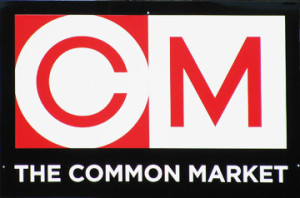Common Market
 Common market is an economic union of nations. Members of a common market work to eliminate tariffs and other trade barriers among themselves and to follow a uniform trade policy with nonmember countries. The members also work to achieve free movement of workers and financial capital from one member nation to another.
Common market is an economic union of nations. Members of a common market work to eliminate tariffs and other trade barriers among themselves and to follow a uniform trade policy with nonmember countries. The members also work to achieve free movement of workers and financial capital from one member nation to another.
Nations form common markets to stimulate industrial growth and efficiency, to increase employment, and to make more and cheaper goods and services available to consumers. The European Union is an example of a common market. For more information on how a common market operates, see European Union (EU).
Some groups of countries have partially or completely removed trade barriers among themselves. However, they are not true common markets because each member maintains its own trade policies with nonmember countries, and workers and capital do not move freely among the members. These groups—or the agreements that have established them—include:
Association of Southeast Asian Nations (ASEAN). Founded: 1967. Members: Brunei, Cambodia, Indonesia, Laos, Malaysia, Myanmar, Philippines, Singapore, Thailand, and Vietnam. See Association of Southeast Asian Nations.
Australia-New Zealand Closer Economic Relations Trade Agreement. Went into effect: 1983. Parties: Australia and New Zealand.
Dominican Republic-Central America-United States Free Trade Agreement (CAFTA-DR). Went into effect: 2006. Members: Costa Rica, Dominican Republic, El Salvador, Guatemala, Honduras, Nicaragua, and the United States.
European Economic Area (EEA). Founded: 1994. Members: Austria, Belgium, Bulgaria, Cyprus, the Czech Republic, Denmark, Estonia, Finland, France, Germany, Greece, Hungary, Iceland, Ireland, Italy, Latvia, Liechtenstein, Lithuania, Luxembourg, Malta, the Netherlands, Norway, Poland, Portugal, Romania, Slovakia, Slovenia, Spain, Sweden, and the United Kingdom.
European Free Trade Association (EFTA). Founded: 1960. Members: Iceland, Liechtenstein, Norway, and Switzerland. See European Free Trade Association.
Mercosur. Founded: 1991. Full members: Argentina, Brazil, Uruguay, and Venezuela. Paraguay was a full member but was suspended for one year in 2012. This allowed members from Argentina, Brazil, and Uruguay to admit Venezuela into Mercosur. Venezuela had sought membership since 2006, but Paraguay had refused to ratify Venezuela’s membership. Associate members: Bolivia, Chile, Colombia, Ecuador, and Peru. See Mercosur.
North American Free Trade Agreement (NAFTA). Went into effect: 1994. Parties: Canada, Mexico, and the United States.
